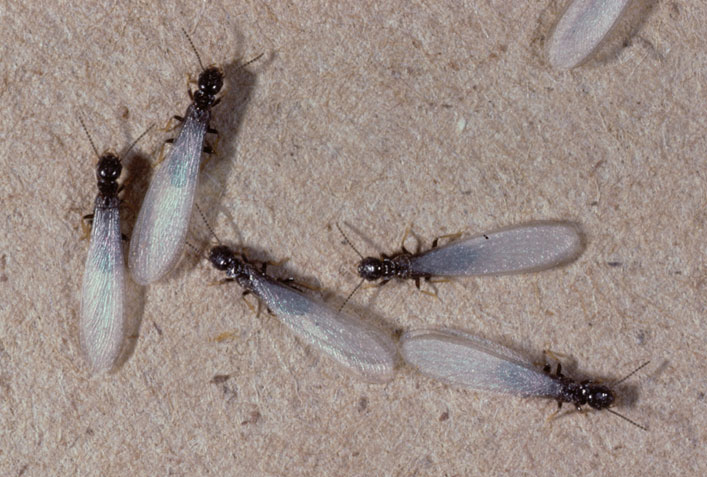Premier Termite Control Services: Ensure Long-Term Security for Your Property
Premier Termite Control Services: Ensure Long-Term Security for Your Property
Blog Article
Ecological Effect of Insect Control: Balancing Effectiveness With Sustainability
The environmental impact of insect control is a vital concern that needs a fragile balance in between attaining efficiency in making sure and managing parasites sustainability of our communities. As we make every effort to secure our crops, homes, and health from the dangers posed by insects, the techniques we utilize can unintentionally damage the setting. From making use of dangerous chemicals that permeate into our dirt and water to the unintended repercussions on non-target varieties, the repercussions of traditional insect control methods are significant. However, there are arising strategies that supply wish for an extra sustainable method to pest management. These options not just objective to resolve the prompt pest troubles however also take into consideration the lasting wellness of our planet.
Unsafe Chemicals in Pest Control
The utilization of unsafe chemicals in insect control presents significant ecological and health risks that call for cautious consideration and reduction methods. Herbicides, insecticides, and pesticides are generally utilized to eliminate bugs, yet their widespread application can lead to unintended consequences. These chemicals can contaminate dirt, water resources, and the air, impacting not only the targeted parasites yet additionally advantageous pests, wildlife, and humans.

To deal with these risks, integrated pest management (IPM) strategies are being advertised as a much more lasting option. IPM involves a mix of approaches such as organic control, habitat adjustment, and the targeted use pesticides as a last resource (ant control kannapolis nc). By adopting an all natural strategy to pest control, we can reduce the ecological and wellness effects related to harmful chemicals while effectively taking care of pest populations
Effect On Non-Target Species
Thinking about the unintentional repercussions of bug control approaches, the influence on non-target species is a critical element that needs detailed assessment. While bug control procedures aim to target particular pests, other organisms in the environment may be unintentionally impacted. Non-target species, including valuable bugs, birds, mammals, and even plants, can suffer direct or indirect injury from pesticide applications or biological control techniques.
Chemicals can have dangerous or sub-lethal effects on non-target types. Insecticides designed to deal with a particular bug bug might harm pollinators like or all-natural predators such as ladybugs. Furthermore, chemical residues can accumulate in the atmosphere, impacting non-target microorganisms in time. Biological control agents, if not species-specific, can position risks to unplanned targets, interrupting the ecological equilibrium.
To minimize the influence on non-target species, integrated insect management (IPM) methods that stress an all natural approach to pest control are suggested. These approaches focus on making use of environmentally friendly practices, decreasing damage to valuable microorganisms while successfully handling pest populations. Carrying out comprehensive risk assessments and monitoring the this contact form end results of parasite control efforts are essential steps in safeguarding non-target species and promoting total ecosystem health and wellness.
Dirt and Water Contamination
Unexpected ecological effects of parasite control approaches prolong past affecting non-target species, with considerable effects for dirt and water contamination - termite control. Pesticides, herbicides, and chemical plant foods made use of in bug control can seep right into the soil and contaminate groundwater, positioning a danger to both water and terrestrial ecological communities.
Water contamination is one more vital concern linked with pest control practices. To alleviate dirt and water contamination from pest control activities, incorporated pest management techniques that focus on sustainability and lessen chemical inputs are crucial.
Air Contamination From Chemical Use
Direct exposure to air-borne pesticides during agricultural applications poses a considerable concern for air contamination control procedures. They can volatilize into the air and type volatile organic compounds (VOCs) and various other airborne toxins when pesticides are sprayed onto plants - termite control. These chemicals can add to the formation of ground-level ozone, a major part of smoke that can have harmful results on human health, plant productivity, and total air quality. Furthermore, pesticide drift, where chemicals are brought by the wind to unexpected areas, can lead to the contamination of nearby communities and water bodies.

Methods for Lasting Bug Control
In the world of agricultural methods, applying sustainable insect control approaches is paramount for preserving eco-friendly equilibrium and safeguarding plant returns. Sustainable insect control stresses the usage of eco-friendly techniques to handle parasite populations properly while lessening harm to non-target organisms and ecological communities. Integrated Parasite Management (IPM) is a widely embraced technique that combines organic, cultural, physical, and chemical control techniques to accomplish long-term insect administration remedies.
Plant turning and diversification are likewise efficient methods to disrupt pest life cycles and create much less positive problems for bugs to prosper. Inevitably, by incorporating these lasting parasite control strategies, farmers can accomplish an equilibrium in between pest administration performance and environmental stewardship.
Verdict
In conclusion, the ecological influence of insect control approaches must be thoroughly thought about to stabilize performance with sustainability. Dangerous chemicals utilized in bug control can lead to soil and water contamination, air pollution, and damage non-target varieties - termite control. It is important to implement lasting bug control strategies to decrease these negative impacts on the setting and promote a much healthier community for future generations
By taking on a holistic technique to pest control, we can reduce the environmental and health and wellness effects associated with dangerous chemicals while properly handling pest populaces.

To alleviate the air pollution triggered by pesticide use, it is crucial to take on incorporated bug monitoring strategies that prioritize the use of non-chemical parasite control methods, such as plant rotation, natural predators, and immune crop selections. Sustainable insect control highlights the use of environmentally friendly approaches to manage insect populations properly while minimizing injury to non-target microorganisms and ecosystems. Integrated Pest Monitoring (IPM) is a commonly adopted method that integrates organic, social, physical, and chemical control methods to accomplish long-term pest monitoring options.
Report this page